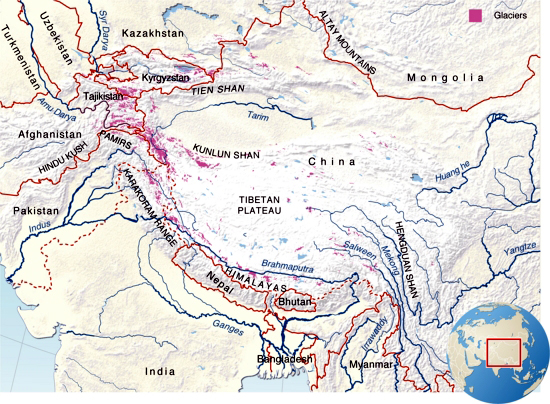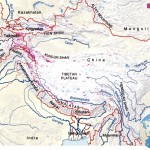
PERSPECTIVE: The Dams of the Himalayas
Strategic Challenges in a Rapidly Changing Region
More than one in five people in the world depend on the great rivers that emanate from the Himalayas.
The environment of that region is changing rapidly, with temperatures increasing by 1.5 degrees Celsius within the last 30 years – more than three times as fast as the global average. This will substantively affect the river flows that more than one billion people, from Shanghai to Hanoi, Delhi to Dhaka.
Meanwhile, the nations in the region have embarked on an unprecedented construction boom in dam building, especially China.
The government of China controls the headwaters of all the area’s major rivers, except the Ganges. Collecting and using the water flows in massive dams can affect the water security of downstream neighbors. The Brahmaputra is the region’s only major river that is shared by the region’s two great powers, India and China. Basin management in this region will test their bilateral relationship.








[…] The Dams of the Himalayas: Strategic Challenges in a Rapidly Changing Region […]
[…] The government of China controls the headwaters of all the areas major rivers, except the Ganges. Collecting and using the water flows in massive dams can affect the water security of downstream neighbors. […]
[…] Plateau – where the climate is warming twice as fast as the rest of the world. ASP’s “Dams of the Himalayas” report, released last November, shows how the adaptation measures being put in place by […]
[…] Tibetan Plateau – where the climate is warming twice as fast as the rest of the world. ASP’s “Dams of the Himalayas” report, released last November, shows how the adaptation measures being put in place by […]
[…] You can see more of our work in this area in our ‘Perspectives’ article, “The Dams of the Himalayas” and these blog posts: here, here, and here (from my previous […]
[…] India, Thailand, and Vietnam. While China tends to prevail in regional disputes, it may face more resistance in the future as water becomes more scarce, as seen with Myanmar’s recent decision to cancel a […]